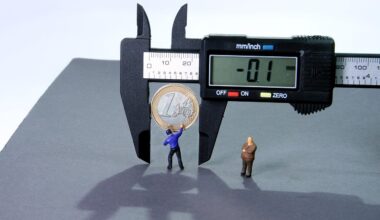The Role of Due Diligence in Successful M&A Transactions
Due diligence is a critical process during mergers and acquisitions (M&A) that allows both parties to evaluate the benefits and risks of a potential transaction. Essentially, this process involves an extensive examination of a company’s financial records, operational processes, legal commitments, and market position. By undertaking due diligence, an acquiring company can identify potential liabilities that might not be immediately apparent, such as pending litigation or regulatory issues. Additionally, understanding the target’s culture and management style can ensure a smoother integration post-acquisition. Effective due diligence requires collaboration between various departments, including finance, legal, and HR, thus providing a comprehensive overview of the target. It also enables decision-makers to negotiate better terms and adapt strategies based on the findings. While the due diligence process may be time-consuming and costly, the potential benefits far outweigh the risks of moving forward without thorough scrutiny. Companies that invest in diligent investigations are more likely to uncover valuable insights that can lead to a successful M&A deal, ultimately supporting long-term growth strategies and enhancing competitiveness in the marketplace.
Key Areas of Focus in Due Diligence
In M&A transactions, certain areas are pivotal during the due diligence process. First, financial statements must be scrutinized, including balance sheets, income statements, and cash flow reports. This financial review seeks to validate the assumptions behind valuations and uncover any discrepancies or undeclared debts. Secondly, legal due diligence entails reviewing agreements, regulations, and any ongoing litigations that could affect the transaction’s legality. Understanding intellectual property rights and compliance with statutory obligations is equally crucial. Thirdly, operational due diligence examines the target company’s business processes, identifying strengths and weaknesses in its operations. Attention must also be given to customer and supplier contracts to gauge market dependencies. Lastly, cultural due diligence is gaining recognition as organizations realize the importance of aligning corporate cultures. By gathering this detailed information, companies can make more informed decisions about pursuing or adjusting their offers, potentially saving significant resources and ensuring a favorable outcome in negotiations. The focus on these key areas can empower stakeholders to navigate the complexities associated with M&A transactions more effectively, thus fostering positive future outcomes.
The timeline for due diligence can vary significantly depending on the nature of the acquisition. Companies must allocate sufficient time for this multifaceted examination to avoid oversights. Typically, a thorough due diligence review may last several weeks to months. In fast-paced industries, like technology, due diligence processes can be expedited but still require comprehensive analysis to mitigate risks associated with inaccuracy. Additionally, obtaining accurate information in a limited timeframe can pose challenges, particularly if the target company has not organized its documentation well. To enhance efficiency, developing a structured checklist tailored to the specific deal can streamline the gathering of necessary data. This approach allows teams to track progress methodically while ensuring no critical aspect is overlooked. Furthermore, the engagement of specialized legal and financial advisors can significantly aid the process. Their expertise will often uncover deeper insights and help interpret complex information, which may not be clear to all stakeholders. Ultimately, the thoroughness and organization of the due diligence process significantly contribute to a successful M&A transaction and foster trust between the negotiating parties.
Risk assessment is a core component of due diligence that warrants attention during M&A processes. Identifying potential risks assists companies in making informed strategic decisions about pursuing a deal or altering terms. Traditional risks include financial discrepancies, compliance violations, and operational inefficiencies. However, in today’s dynamic market environment, emerging risks linked to cybersecurity or environmental policies are crucial factors to consider. For instance, an oversight in assessing data protection measures can incur heavy financial penalties post-acquisition, thus affecting long-term profitability. Additionally, market factors such as competition trends must be evaluated to understand better how the acquisition will enhance market position. Using risk assessment tools and frameworks allows for systematic identification of these potential issues, employing qualitative and quantitative analyses. This structured process contributes to more accurate forecasting of future performance and investor confidence. Knowledge gained through rigorous risk assessments can guide negotiation strategies and post-merger integration plans. Hence, a diligent understanding of risk factors is vital, as it empowers companies to navigate potential challenges and safeguard their investments in M&A activities.
Communication during the due diligence process is paramount to ensure that all parties involved are aligned and informed. Discrepancies in communications can lead to misunderstandings that jeopardize negotiations and M&A outcomes. Establishing clear lines of communication between the buyer and seller creates a collaborative atmosphere where both parties can discuss findings openly. This approach not only strengthens relationships but also fosters transparency concerning any potential issues. Regular updates among team members and stakeholders enhance coordination, minimizing chances of overlooked details. Formulating a communication strategy upfront allows both sides to understand each other’s expectations and preferred modes of information sharing as they navigate through the complexities of the due diligence process. Implementing project management tools can facilitate smoother communication and documentation sharing while providing an organized archive for reference. This structured collaboration ensures that important decisions are backed by accurately disseminated findings. Overall, effective communication mitigates risks associated with due diligence while promoting successful M&A transactions that satisfy all parties involved.
Post-due diligence analysis plays a critical role in ensuring a successful M&A transaction. Once due diligence is completed, the next step involves synthesizing all gathered information and evaluating the implications for the merger or acquisition. By analyzing the findings, companies can make necessary adjustments to their strategies, refine their negotiation positions, and establish clear expectations moving forward. This phase is equally important because it validates the findings from due diligence and aligns them with broader company goals. Often, discrepancies uncovered during due diligence lead to renegotiation of terms or adjustments in pricing to reflect discovered risks. Moreover, understanding the insights gained can facilitate quicker and more effective integration post-acquisition. A well-structured integration plan responding to the due diligence findings allows companies to minimize disruptions, maximize synergies, and position themselves for success. A team approach, drawing upon cross-functional expertise, nurtures a shared understanding while minimizing integration risks. Overall, the post-due diligence phase encompasses crucial reflections that ensure all parties stay aligned and informed about the path forward.
In conclusion, due diligence serves as the backbone of successful mergers and acquisitions, enabling informed decision-making while minimizing risks. This critical examination encompasses financial, legal, operational, cultural, and risk assessments that reveal vital insights. Companies engaging in thorough due diligence prepare themselves strategically, gaining advantage through comprehensive analysis. By prioritizing transparent communication and fostering collaboration, companies foster trust and set the tone for smooth negotiations, which can ultimately affect integration success. Furthermore, organizations that adopt structured processes for due diligence and invest time and resources considerably reduce the likelihood of post-acquisition complications. The ultimate goal is to ensure that both parties achieve fair value from the transaction while laying the groundwork for sustainable growth. Addressing potential challenges proactively strengthens the foundation of partnerships forged through M&A deals. As the landscape of business continues to evolve rapidly, due diligence remains a vital practice that will play an essential role in navigating complex transactions. By recognizing its importance, stakeholders can approach M&A transactions with confidence and clarity, thus embracing the opportunities these deals offer.


